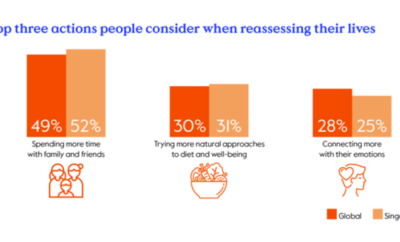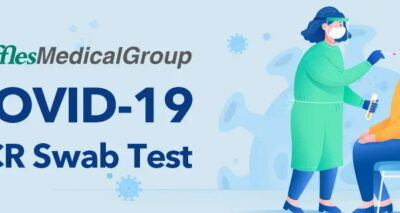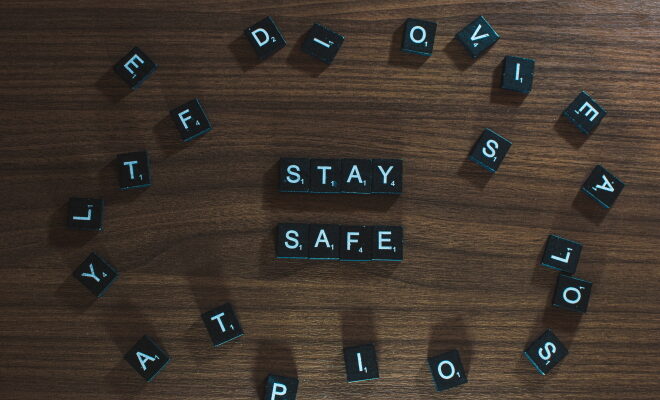
Health x Wellness
EXPLAINER: DIY COVID ANTIGEN KITS vs COVID PCR TEST
Singapore-based residents have been able to purchase a do-it-yourself COVID-19 Antigen test kit at retailers since June. We find out the differences between using a COVID-19 Antigen test kit and taking a COVID-19 PCR test at the clinic.
Singapore’s Ministry of Health announced that DIY COVID-19 Antigen test kits would be available for public to buy at retail for self-testing purposes from 16 June, 2021.
Dr. Julian Ng, Chief Medical Officer of DTAP Clinic Singapore, Malaysia & Vietnam shares an article explaining the differences between a DIY COVID-19 Antigen test and a COVID-19 PCR test.
What is a COVID-19 Antigen test and how is it different from a COVID-19 PCR test?
Imagine that the COVID-19 virus is a person wearing a coat. This coat is called the antigen, while the nucleic acid (RNA, short for ribonucleic acid) is the person’s body. Antigen tests work by detecting the presence of the coat, while PCR tests work by detecting the presence of the body.
Vaccines and our own immune systems also target the antigen. Interestingly, just as we don’t wear the same coats every day, viruses might also change their antigens when they become a new strain of the same virus.
Currently, most of the COVID-19 Antigen tests offered in clinics and done by health professionals or trained personnel, takes a sample from all the way to the back of the inside of the nose. While it is largely painless, this procedure may cause some discomfort like watery eyes, or a feeling that you need to sneeze.
Some of the DIY COVID-19 Antigen kits that can be used by the public only requires the person to take sample from the front part of the nostrils. This makes it easier for untrained members of the public to take a sample. However, this might mean that the test may not be as sensitive as those done by clinics or trained personnel.
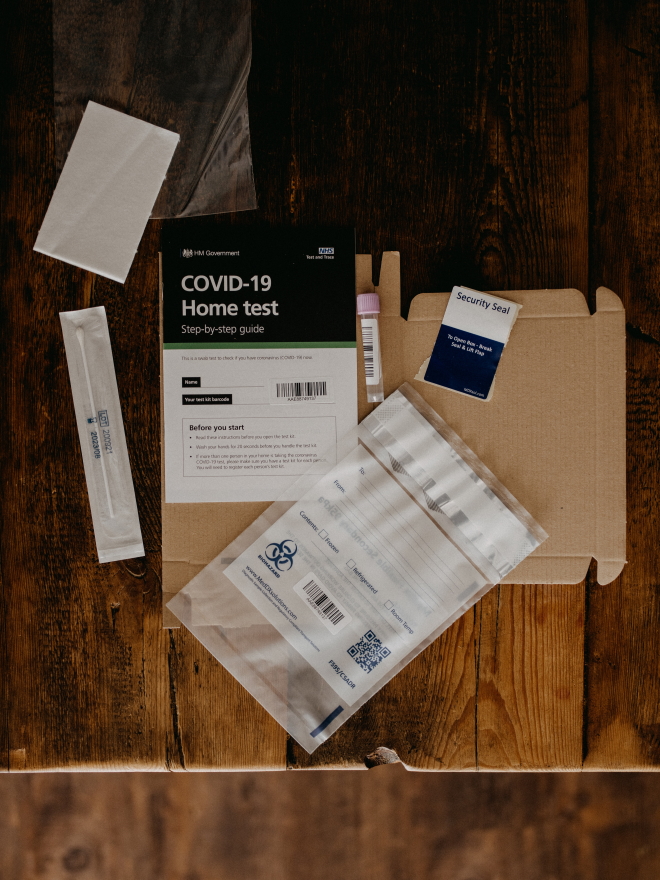
COVID-19 PCR test also takes samples from the back of the nose. However, it detects the “body” of the virus. In the COVID-19 virus case, the test detects the RNA of the virus. This means that this test is the most accurate and sensitive to detect whether a person has the infection as it only needs a small amount of the “body” of the virus to be present.
COVID-19 Antigen tests are known to be less sensitive than the COVID-19 PCR tests. This means that they have a higher chance of giving a negative result, even when the person being tested has been infected. It comes down to the fact that the COVID-19 PCR only needs a tiny amount of the “body” of the virus to give a positive result as the PCR technology is able to multiply the tiny amount of the “body” of the virus millions of times, even if the person may have very small amounts of the virus.
If COVID-19 Antigen tests are less sensitive than COVID-19 PCR tests, then why are we using it?
The main reason is that COVID-19 antigen tests give quick results. It requires roughly about 15 to 20 minutes to give an idea of whether someone is infected or not.
In contrast, a COVID-19 PCR test can take a few hours to 24 hours for results. If the aim is to try to identify and isolate people quickly to reduce the chance of spreading it further, then using the antigen test may be more appropriate.
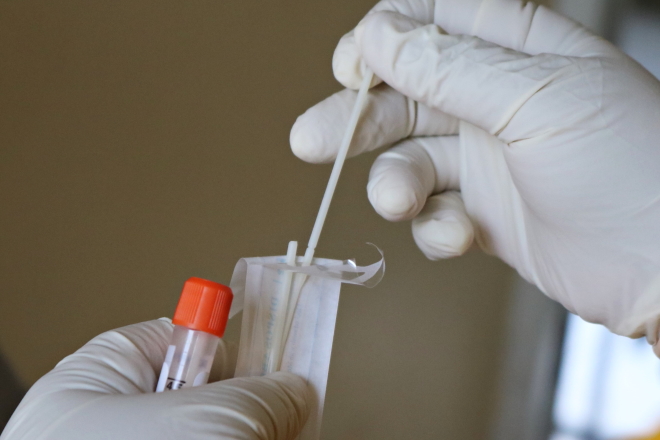
Is there a difference between using the DIY COVID-19 antigen test kit to self-test versus seeing a medical professional?
As mentioned previously, many of the DIY COVID-19 test kits only require samples from the front of the nostrils. The amount of virus antigen may be lesser than if the samples were taken from the back of the nose. There is potential that it is less sensitive than the ones collected by professionals.
However, these DIY kits do have a role to play. If you think that you may have been exposed to COVID-19, you may want to do your own test first. If the DIY test kit turns positive, then you should go to a health professional for further advice.
Please make sure that you buy from reputable sources if you wish to use these DIY COVID-19 test kits. You may be tempted to buy these online, but in some cases, these kits are fake, not properly manufactured, or poorly stored. This can result in the purchase of a malfunctioning test kit.
Additionally, please follow the instructions of the kit strictly. If you don’t, you may cause the result to be falsely negative even though you might actually be infected.
Lastly, if you do test positive using these DIY test kits, please visit the nearest medical professional to seek further advice and testing. Please do not brush off a positive result, even if you are asymptomatic, as you might be endangering the lives of your loved ones at home, as well as your colleagues and friends.
You might not be lucky enough to win the lottery, but you certainly don’t want to take any chances when it comes to a COVID-19 infection.
The COVID-19 PCR test is deemed to be the more sensitive test. What happens to a patient who is still ‘shedding’ RNA from a past infection?
There are additional tests such as a serology test. When it is coupled with a COVID-19 PCR test, it can show that a person is shedding from a past infection.
The person may be deemed as not infectious anymore. There may not be a need to quarantine the person but this depends on other factors such as presence of ongoing symptoms, travel history, previous test results.
Are they treated differently vs. a patient that is currently infected e.g. SHN, Quarantine order, medication?
In previous cases where MOH has deemed the person as likely shedding due to past infection, MOH has reported in some cases that they are not likely to be infectious anymore and may not require quarantine or may shorten the quarantine order. There are many factors as explained earlier before MOH decides on a case-to-case basis how they may handle such cases.
What steps should I take if I test positive using the DIY COVID antigen test kit?
If you have been tested positive using the DIY COVID-19 antigen kit, please visit your nearest PHPC/ SASH clinics where the doctor can do the confirmatory COVID-19 PCR swab test regardless of whether you have symptoms or have been vaccinated.
Please remember to bring along the following:
- Photo ID
- A photo of the test kit that shows the positive result
Additionally, do not use public transport to travel to the clinic. Instead, use private transport such as taxis, or private hire cars. Do not go anywhere else other than to the clinic and back home. Also try to minimise contact with household members as much as possible. You are also required to self-isolate until the COVID-10 PCR swab test result is negative.
Dr Julian Ng is the resident doctor at DTAP Clinic. He graduated from the University of Sydney with the Bachelor of Medicine and Bachelor of Surgery. His special interests include Paediatrics, Chronic Diseases Management and Sexually Transmitted Diseases (STDs).
Readers can visit DTAP Clinic to find out more about COVID-19 testing, or to get tested for COVID-19.
Photo by Mufid Majnun on Unsplash and by Annie Spratt on Unsplash and by Nelly Antoniadou on Unsplash

